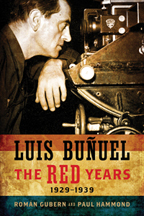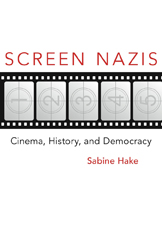The University of Wisconsin Press
Film / Cultural Studies / Politics
Screen Nazis Probing the emotional sources and effects of this fascination, Sabine Hake looks at the historical relationship between film and fascism and its far-reaching implications for mass culture, media society, and political life. In confronting the specter and spectacle of fascist power, these films not only depict historical figures and events but also demand emotional responses from their audiences, infusing the abstract ideals of democracy, liberalism, and pluralism with new meaning and relevance. Hake underscores her argument with a comprehensive discussion of films, including perspectives on production history, film authorship, reception history, and questions of performance, spectatorship, and intertextuality. Chapters focus on the Hollywood anti-Nazi films of the 1940s, the West German anti-Nazi films of the 1950s, the East German anti-fascist films of the 1960s, the Italian “Naziploitation” films of the 1970s, and issues related to fascist aesthetics, the ethics of resistance, and questions of historicization in films of the 1980s–2000s from the United States and numerous European countries.
|
"Hake’s innovative transnational approach and theoretical sophistication are accompanied by fine detailed analysis of specific films. She engages in dialogue with some of the newest and most interesting work in the theory of cinema." |
||||||||
|
|
If you have trouble accessing
any page in this web site, contact our Web manager. Updated February 15, 2012 © 2012, The Board of Regents of the University of Wisconsin System |
 Sabine Hake is the Texas Chair of German Literature and Culture at the University of Texas at Austin. She is the author of numerous books and anthologies on German cinema and culture, including Topographies of Class: Modern Architecture and Mass Society in Weimar Berlin.
Sabine Hake is the Texas Chair of German Literature and Culture at the University of Texas at Austin. She is the author of numerous books and anthologies on German cinema and culture, including Topographies of Class: Modern Architecture and Mass Society in Weimar Berlin.
